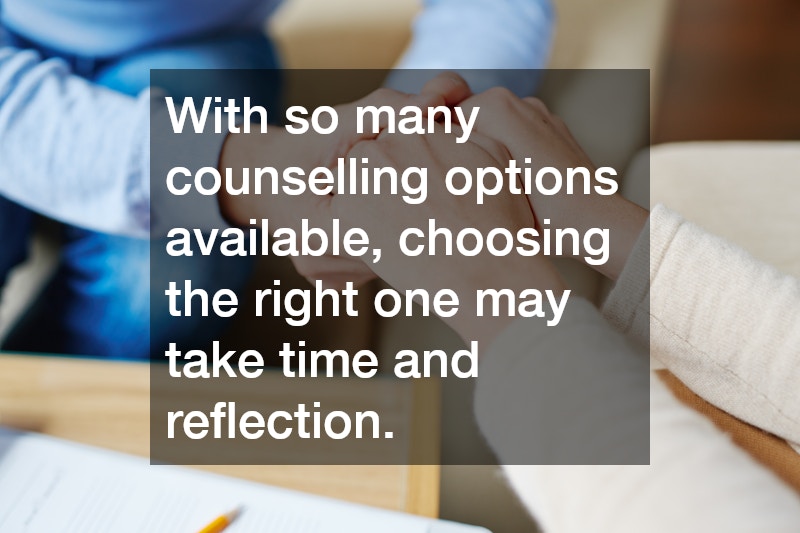Mental health support has become increasingly accessible across Australia, with more people recognising the benefits of professional guidance. However, knowing which type of help is best can still feel overwhelming—especially when facing stress, uncertainty or emotional difficulty. With a wide range of specialisations and therapeutic approaches available, it’s important to choose the one that aligns with your situation and goals. Factors such as the type of issue, personal comfort with the approach and the practitioner’s experience can all influence the outcome. This guide breaks down common forms of professional support and offers practical tips for making an informed choice that supports lasting wellbeing.
What Does Professional Support Involve?
At its core, psychological support is a professional service designed to assist individuals experiencing personal, emotional or psychological challenges. It typically involves structured sessions with a trained practitioner who listens, guides and helps explore strategies for coping or change. Sessions are confidential, person-centred and focused on building trust and resilience over time. Different approaches exist to cater to specific needs, including personal development, trauma recovery, mental health conditions and relationship support. Support can be short-term for immediate concerns or long-term for deeper, ongoing issues, depending on what the client hopes to achieve.
Common Types of Support
Understanding the key differences between support types can help you narrow your options. Each approach is designed to address unique challenges and personal goals.
One-on-one sessions with a qualified therapist are a common form of support. These focus on personal issues such as anxiety, depression, grief, low self-esteem or life transitions. This is often the most flexible and widely used format, allowing for deep exploration of personal experiences.
Another option supports individuals in romantic or familial relationships who want to improve communication, rebuild trust or work through conflict. Sessions for couples are particularly beneficial when both parties are willing to engage in the process and commit to constructive change. Family sessions may include children, parents or other key figures.
For those facing job dissatisfaction, career changes or workplace stress, there is a type of support that provides clarity and direction. These sessions may explore strengths, values and long-term career goals while also addressing stress management and conflict resolution at work.
For people who have experienced significant trauma, a trauma-informed approach prioritises safety, trust and empowerment. It integrates an understanding of how trauma affects the brain and body, helping clients manage symptoms and work towards healing at their own pace.
Some practitioners offer a structured, evidence-based method known as cognitive behavioural therapy, which focuses on identifying and changing negative thought patterns. This technique is especially effective for anxiety, depression, phobias and obsessive-compulsive behaviours. Sessions often include practical exercises and goal-setting.
Specialised addiction counselling assists individuals dealing with substance misuse, gambling or other compulsive behaviours. Support often extends to families affected by addiction and may be paired with medical or group therapy interventions.
For clients from diverse backgrounds, culturally sensitive approaches recognise the importance of identity, heritage and lived experience. Practitioners in this field are trained to respect cultural norms and provide inclusive, empathetic care.
Factors to Consider When Choosing a Counsellor
Finding the right fit is about more than just availability. Several considerations can help guide your decision.
Begin by identifying the issue or area you wish to work on. Whether it’s anxiety, a recent loss or a relationship challenge, knowing your focus will help you find a practitioner with the relevant expertise.
It’s important to ensure your counsellor is registered with a recognised professional body such as the Australian Counselling Association or PACFA. This guarantees they meet ethical standards and ongoing training requirements.
Some clients prefer structured, goal-oriented methods like cognitive behavioural therapy, while others seek open-ended, exploratory conversations. Understanding what you feel most comfortable with can shape the therapeutic experience.
You should also think about accessibility. Decide whether you prefer in-person, phone or online sessions. Telehealth options have grown significantly, making it easier to find support regardless of location. Also consider scheduling flexibility, cost and whether the service is covered by Medicare or private insurance.
Finally, trust your instincts. The relationship between client and counsellor is a critical part of the healing process. A sense of safety, empathy and mutual respect should be present. It’s okay to change practitioners if the fit doesn’t feel right.
Making the Most of Your Sessions
Once you’ve chosen a counsellor, give yourself time to adjust. Progress may not always be immediate, but consistency is key. Keep an open mind, set clear goals and don’t hesitate to raise concerns or ask questions throughout the process.
With so many counselling options available, choosing the right one may take time and reflection. Whether you’re dealing with personal struggles, relationship challenges or life transitions, support is within reach. Understanding the different approaches and knowing what to look for in a practitioner can make your journey more effective and empowering. Remember that seeking help is a strength, not a weakness—and the right support can lead to lasting positive change.
.





